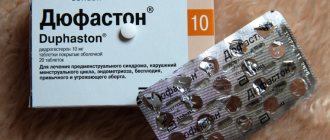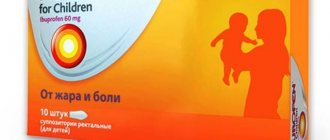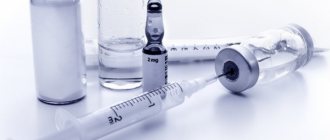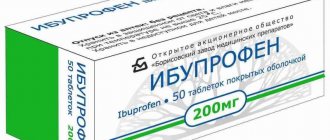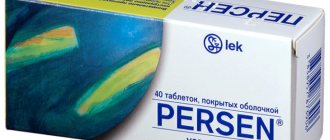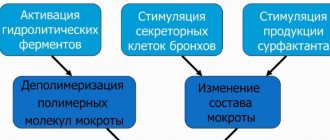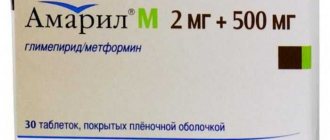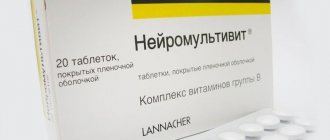Composition, release form, packaging
The main active ingredient is ibuprofen. This substance belongs to the group of propionic acid derivatives. Nurofen is available in different forms. The tablets are coated with sugar. Each contains 200 mg ibuprofen. The excipients include sucrose, talc, silicon dioxide, titanium dioxide, and stearic acid. The blister can contain 6 or 12 elements.
Effervescent tablets contain the same amount of active ingredient. They also contain sucrose, saccharin, sorbitol, and citric acid. One plastic tube contains 10 tablets.
Nurofen is also sold in the form of a suspension. 5 ml contains 100 mg of active substance. To obtain the syrup, water, glycerol, sodium citrate, flavoring, and domiphene bromide are used.
Suppositories contain 60 mg ibuprofen and solid fat. Available in a plastic blister in a cardboard package. It contains 10 candles. Nurofen is also available in gel or ointment form.
Release forms of Nurofen
Nurofen tablets: user reviews
Gennady, 42 years old:
“I took Nurofen tablets during complex treatment of prostatitis. Along with antibiotics and drugs that make urination easier, I took this remedy. The temperature went away on the first day of treatment. And I managed to remove the inflammatory swelling after 3 days. The product works quickly, I had no side effects. I took the pills strictly according to the instructions: 3 tablets a day.”
Dmitry, 35 years old:
“Nurofen helped me during the treatment of prostatitis. Thanks to him, I forgot what it was like to have a painful urge to urinate, pain in the urethra and rectum. In the phase of exacerbation of prostatitis, I took Nurofen Express tablets, then switched to regular Nurofen. Nurofen is ideal as an aid to alleviate prostatitis. And the effect of the medicine is quick, and the price is not bad.”
Indications
Nurofen is used in situations where pain needs to be relieved quickly and effectively. The indications are:
- Headaches and migraines.
- Neuralgia of the trigeminal and facial nerve.
- Acute attack of toothache.
- Discomfort in the spine.
- Radiculitis.
- Shingles.
- Neuralgia.
- Painful menstruation.
- Increased body temperature.
The drug also helps with feverish conditions, postural hypotension and to reduce the severity of proteinuria.
Indications for use of Nurofen 200
The drug is suitable for eliminating the symptoms of ARVI, relieving pain resulting from an injury or internal diseases. Ibuprofen has been proven effective for:
- headaches (including migraine type);
- pain due to pulpitis, after removal of a tooth or nerve;
- neuralgia;
- sore throat;
- rheumatic and joint pain;
- severe PMS, painful menstruation;
- myalgia.
In addition, ibuprofen is an effective antipyretic, indispensable for influenza and colds.
Contraindications
The tablets should not be used by people who have problems with the gastrointestinal mucosa. Contraindications include hypersensitivity, peptic ulcer of the stomach and duodenum, aspirin asthma, diseases of the optic nerve.
It should not be used if you have color vision problems.
Doctors prefer to opt for other medications if there is:
- severe renal failure,
- decompensated heart failure,
- bleeding disorders,
- pregnancy,
- children's age (for tablets).
Contraindications, side effects and overdose
The tablet format of Nurofen is contraindicated in a number of cases.
In particular, the drug is prohibited for patients:
- under 12 years of age;
- having special sensitivity to the components of the drug;
- bronchial asthma, rhinitis or urticaria;
- having ulcerative and erosive diseases of the gastrointestinal tract in the progressive phase;
- with inflammation of the large and small intestines;
- with liver, heart or kidney failure;
- hypertensive patients;
- with blood clotting pathology, leukopenia or hyperkalemia;
- hemorrhagic stroke or vasculitis;
- who have undergone surgery on the aorta or arteries.
In addition, Nurofen should not be used by women in the last months of fetal development or nursing mothers.
Even for patients who do not have obvious contraindications, the dosage must be strictly observed, because otherwise, dangerous effects such as the following may occur:
- convulsions;
- bleeding of various locations;
- disturbance of sinus heart rhythm;
- progression of heart failure;
- stopping breathing.
An overdose of the drug significantly increases the severity of side effects from taking Nurofen.
Among the negative reactions of the body to ibuprofen are:
- allergic skin reactions and swelling;
- mild visual and auditory impairment;
- difficulty breathing;
- sleep disturbance and general psychomotor overexcitation;
- hypertension, rapid heartbeat and arrhythmia;
- disturbance of the process of defecation, nausea, vomiting, development of stomatitis, pancreatitis, ulcers;
- decreased concentration of leukocytes and platelets in the blood;
- in rare cases, renal failure.
However, with the supervision of a specialist, the likelihood of these phenomena occurring is minimized.
Mechanism of action
After absorption, the drug moves to organs and places where there is increased synthesis of enzymes that form prostaglandins. When interacting with active substances, the cycle is interrupted. A nonsteroidal anti-inflammatory drug relieves inflammation and hyperthermic reactions.
Nurofen has high absorption (binding with plasma proteins reaches 90%). There is a slow penetration into the joint cavity and retention in the synovial tissue. This creates higher concentrations of the substance than in plasma.
Nurofen's analogs
You can replace this drug with another drug of similar effect.
The main thing is that the tablets belong to the category of non-steroidal anti-inflammatory drugs.
The most common substitutes for Nurofen tablets are the following medications: Aspirin, Ibuprofen, Nimesil, Indomethacin, etc. But each of these drugs has its own limitations and features of use. Therefore, you cannot decide on your own to change the medication. You need to discuss this point with your doctor.
Aspirin
Ibuprofen
Nimesil
Indomethacin
Instructions for use
The daily dose of the drug for persons over 12 years of age is 1200 mg. It is divided into several doses depending on the form of the medicine used. Usually 200 mg is prescribed at a time, but according to the doctor's prescription, this dosage can be increased to 400 mg.
Children from 6 to 12 years old are prescribed no more than 200 mg per day. These medications are taken at regular intervals. The maximum permissible daily dose is 900 mg. Children are prescribed candles. The dosage is selected depending on weight: per 1 kg 5-10 mg. The maximum daily dose is no more than 30 mg per 1 kg.
According to the instructions, it is recommended to take the tablets after meals. They need to be washed down with plenty of water. Effervescent tablets dissolve in a glass of warm water.
Instructions for use of Nurofen:
Does Nurofen have cheaper analogues?
Before answering this question, you should figure out what can replace Nurofen, and only then, comparing the prices of medicines, determine which remedy will be cheaper.
The selection of analogues is carried out after studying the instructions for Nurofen in order to clearly know what we want to get from the substitute drug. The main task is to minimize the problems that the patient encountered while taking Nurofen. In principle, this is why an analogue is selected, but only a doctor understands this well. The patient is more interested in a cheaper analogue.
List of Nurofen analogues for adults
The most popular analogues of Nurofen in terms of structure and therapeutic effect include the following drugs:
- (400 mg, tablets No. 30) – 80 rubles;
- mig 400 (tablets No. 20) – 135 rubles;
- maxicold (table No. 10 and suspension 200 g) – 180 and 150 rubles;
- ibuklin (table 400 mg + 325 mg No. 20) – 110 rubles;
- ibuklin junior (table 100 mg + 125 mg No. 20) – 90 rubles;
- cefekon D (suppositories 100 mg No. 10) – 40 rubles;
- paracetamol (200 mg tablets No. 10) – 4 rubles;
- paracetamol (syrup 100 ml) – 70 rubles;
- paracetamol (suppositories 250 mg No. 10) – 35 rubles;
- calpol (suspension 100 ml) – 90 rubles;
- efferalgan (effervescent tablets No. 16) – 130 rubles;
- efferalgan (syrup 90 ml) – 80 rubles:
- efferalgan (suppositories No. 10) – 110 rubles;
- other.
The given list of analogues shows that only Maxicold is in an equal position with Nurofen, the rest of the drugs are cheaper.
Which remedy for colds and fever should I choose?
Nurofen analogues for children - which is better?
Parents are often interested in what children's analogues can replace Nurofen, because now there are quite a lot of antipyretic drugs of various compositions on offer. Are they all safe and will not harm the child?
It is undesirable to use analogues that contain aspirin (acetylsalicylic acid). The danger of such drugs lies in the possibility of Reye's syndrome, nosebleeds, “aspirin asthma,” and ulcerative processes in the gastrointestinal tract. Children are most sensitive to aspirin. Consequently, in pediatrics, aspirin is prohibited until the age of 15.
There is also a problem with analgin, especially injectable ones. In pediatrics, there are few antipyretic drugs for intramuscular administration. Analgin, according to many doctors, should be used only after 12 years of age, because in many countries of the world it is generally prohibited.
But the experience of many parents will certainly tell you that often only analgin eliminated fever when other means were powerless to help.
The most popular drugs in pediatrics that replace nurofen, taking into account all WHO requirements, remain two drugs: ibuprofen and paracetamol.
Paracetamol is the number one safe remedy for fever in children, used from birth. This statement is recognized by both the World Health Organization and the Russian Ministry of Health.
- The disadvantage of paracetamol is that the temperature drops by only a few degrees, and remains in this state for about three hours. Therefore, there is an opinion among parents that it is ineffective.
When choosing analogues, you need to weigh the pros and cons, and try to select the medicine that is most suitable for a particular patient.
We recommend reading - which antipyretics to choose for fever.
Side effects
If the medicine is taken for no more than 2-3 days, there are practically no side effects. With longer use, the gastrointestinal tract may cause vomiting, flatulence, and the development of erosive and ulcerative symptoms. Sometimes ulcers appear on the mucous membrane of the gums, stomatitis, hepatitis, and constipation.
Problems with the nervous system may also arise. These include headaches and dizziness, insomnia, agitation, and excessive drowsiness. The occurrence of allergic reactions, for example, skin rash, itching, and Quincke's edema cannot be ruled out. In extreme cases, anaphylactic shock or toxic epidermal necrolysis can occur.
With long-term use, bleeding and color vision impairment may develop. If such effects occur, it is recommended to stop taking the drug and consult a specialist.
Overdose
With a strong increase in dosage, severe abdominal pain, drowsiness, depression, and headache appear. Serious poisoning can lead to coma, heart failure, or sudden respiratory arrest.
In all these cases, gastric lavage, the use of activated carbon, and alkaline drinking are prescribed. The doctor may prescribe symptomatic therapy.
Reviews from doctors
Yuri Berezovsky, plastic surgeon, Moscow: “A good pain reliever with a long-lasting effect. In the first 3-4 days after surgery, due to regular use, the pain syndrome is almost completely relieved. If inflammation occurs, the drug removes it too. The main thing is not to get carried away, since long-term use of NSAIDs can lead to the appearance of ulcers in the stomach and duodenum.”
Vladimir Bykov, pediatrician, Sochi: “The drug quickly reduces even high fevers, improves well-being, eliminates the feeling of weakness and headaches. However, you can only bring down a temperature of 38.5°C and above - before that, the child’s immune system must fight the virus on its own.”
special instructions
During long-term treatment, it is necessary to monitor the peripheral blood picture and the functional state of the urinary system. If signs of gastroenterological consequences appear, then hardware and laboratory research methods are carried out. This includes taking a stool test for occult blood.
During treatment, patients are advised to abandon all activities that require increased attention and quick response. In addition, you should stop drinking alcoholic beverages.
Popular video about the drug Nurofen:
Nurofen forte – effective and long-lasting
Nurofen forte is a drug with increased effectiveness.
It is available in tablets and capsules. All recommendations for its use (including recommendations for dosages and treatment regimens) do not differ from recommendations for the use of other dosage forms of the drug. Composition and action of Nurofen forte
Nurofen forte, the composition of which is specified in the instructions developed by the manufacturer (pharmaceutical company Reckitt Benckiser Healthcare, UK), is available in the following dosage forms:
- Nurofen forte film-coated tablets 400 mg, packs of 6, 12 or 24 pcs.
- Nurofen express forte capsules with liquid contents of 400 mg, packs of 4, 8, 10, 16, 20 or 30 pcs.
- Nurofen UltraCap forte capsules with liquid contents of 400 mg, packs of 4, 8, 10, 20 or 30 pcs.
All dosage forms of Nurofen forte contain a double dose of the active ingredient - ibuprofen. Ibuprofen: an anti-inflammatory drug classified as a non-steroidal anti-inflammatory drug (NSAID). All NSAIDs have anti-inflammatory, analgesic and antipyretic effects. The peculiarity of ibuprofen is that it is well tolerated by patients in recommended dosages, prescribed once or in short courses of treatment.
Use of the drug for joint diseases
Nurofen forte instructions for use recommend taking the drug for inflammatory and degenerative diseases of the joints. Nurofen forte in capsules is especially suitable for the treatment of such diseases, since the liquid contents are quickly absorbed in the gastrointestinal tract and enter the blood, but penetrate slowly and linger for a long time in the joint tissues. This allows, even after a one-time dose of the drug, to significantly alleviate the patient’s condition, relieving inflammation and pain in the joints. Pain in the joints - how to figure out what’s happening?
The drug can be taken one capsule 3 times a day. The maximum daily dose should not exceed 1200 mg. The duration of the course of treatment should not exceed 2-3 days. For longer treatment, the doctor must conduct laboratory monitoring (general and biochemical blood tests) to exclude side effects of the drug. For severe pain, Nurofen forte can be combined with painkillers from other clinical and pharmacological groups.
Use of the drug for other diseases accompanied by pain and fever
Diseases of the peripheral nerves (neuralgia, radiculitis) are often accompanied by severe pain. In this case, taking Nurofen forte can bring significant relief to the patient. Recommended dosages and treatment regimens are the same as for joint diseases.
In some cases, a one-time dose of the drug is sufficient to alleviate the patient’s condition. Nurofen forte perfectly relieves ear, toothache and headaches.
At high temperatures due to acute respiratory infections, Nurofen forte is taken as an antipyretic. A one-time dose of the drug will relieve fever for 6-8 hours.
Side effects
All side effects of Nurofen forte are dose-dependent. This means that the drug is well tolerated if the recommended doses and treatment regimens are not exceeded. Otherwise, the following side effects are possible:
- abdominal pain, nausea, vomiting, sometimes erosive and ulcerative lesions of the gastrointestinal tract (GIT);
- bleeding, including from the gastrointestinal tract - due to a decrease in the number of blood platelets;
- anemia and decreased immunityImmunity - types and characteristics in children and adults - due to a decrease in the number of red blood cells and leukocytes in the blood;
- impaired liver or kidney function;
- allergic diseases (for example, “aspirin” bronchial asthma) and allergic reactions;
- swelling and increased blood pressureBlood pressure - are its fluctuations dangerous? (HELL);
- individual intolerance to the components of the drug.
Contraindications for use
Nurofen express forte is contraindicated in the following diseases and conditions:
- children under 18 years of age; despite the fact that the instructions indicate ages up to 12 years, the recommended daily dosages correspond to adults;
- pregnancy in the third trimester; for other periods - take with caution and only as prescribed by a doctor;
- erosive and ulcerative diseases of the gastrointestinal tract;
- increased bleeding and any bleeding;
- severe diseases of the liver, kidneys and heart with dysfunction of these organs;
- allergic diseases (for example, bronchial asthma) associated with taking any drugs from the NSAID group;
- enzymatic deficiency and associated malabsorption of simple carbohydrates in the small intestine;
- individual intolerance to the components of the drug.
Nurofen forte in tablets and capsules allows you to permanently eliminate pain, inflammation and fever. But you should not abuse this drug.
Galina Romanenko
Article tags:
- Nurofen
|
|
Related articles Nurofen: antipyretic and pain reliever
Nurofen for fever - prescription for adults and children
Nurofen analogues – what to choose?
Nurofen for adults – in what cases does it help?
Drug interactions
Doctors do not recommend combining Nurofen with Aspirin and other non-steroidal inflammatory drugs. When administered simultaneously, the anti-inflammatory effect is reduced.
If thrombolytic medications are co-administered, the risk of bleeding increases. At the same time, cyclosporine and gold preparations enhance the effect of the active component on the synthesis occurring in the kidneys. The results may be increased nephrotoxicity.
During pregnancy and breastfeeding
Women during pregnancy can use Nurofen only after consultation and strictly under the supervision of the treating gynecologist. In the 1st and 2nd trimesters of pregnancy, the drug can be used, but the dosage should be as correct as possible and the duration of use should be minimal. During the 3rd trimester of pregnancy, the use of Nurofen is prohibited.
Due to the fact that the active component of the drug, ibuprofen, can pass into breast milk in small quantities, the lactation period can be considered a contraindication. Although clinical studies have not established any negative effects on the newborn, it is better, if possible, to prevent the penetration of a strong painkiller into the child’s fragile body.
Reviews about the drug
According to reviews, Nurofen really helps to quickly relieve pain and high body temperature. It is noted that the tablets take longer to dissolve, so the full effect appears after about 30-40 minutes. Effervescent tablets for adults and suppositories for children work the fastest.
Side effects are rare. But sometimes, to achieve a good result, people have to combine the drug with paracetamol or some other types of antipyretic and painkillers. This phenomenon is observed more often when a bacterial infection is associated.
Medical use
Ibuprofen is used primarily to treat fever (including fever after vaccination), mild to moderate pain (including pain relief after surgery), painful periods, osteoarthritis, toothache, headaches, and pain from kidney stones.[12]
It is used for inflammatory diseases such as juvenile idiopathic arthritis and rheumatoid arthritis.[13][14] It is also used for pericarditis and patent ductus arteriosus.[15][16][17]
Ibuprofen-lysine
In some countries, ibuprofen-lysine (the lysine salt of ibuprofen, sometimes called ibuprofen libutane) is licensed to treat the same conditions as ibuprofen; lysine salt is used because it is more water soluble.[18] In 2006, ibuprofen-lysine was approved in the United States by the Food and Drug Administration (FDA) for the closure of patent ductus arteriosus in preterm infants weighing 500 to 1500 grams who are less than 32 weeks old when conventional medical treatment (such as restraint) fluids, diuretics, and respiratory support) are ineffective.[19]
Treatment of postoperative pain
Ibuprofen 200 mg and 400 mg provides high levels of pain relief in approximately half of patients with moderate to severe acute postoperative pain. This is a good result compared to most other analgesics, tested in a very well studied pain model used to demonstrate that drugs can actually produce pain relief. There were no more side effects than with placebo.[20][21]
Treatment of Alzheimer's disease
There is growing interest in nonsteroidal anti-inflammatory drugs (NSAIDs) for the treatment of Alzheimer's disease. Extensive epidemiological studies have shown a lower prevalence of cognitive impairment in patients receiving long-term NSAID treatment. Animal and cell culture studies have suggested that inflammatory processes may be involved in the pathogenesis of Alzheimer's disease. As a result, agents such as ibuprofen have been proposed for the treatment of people with AD. Although ibuprofen is generally better tolerated than some other NSAIDs such as indomethacin, there have been no published randomized controlled trials examining the effectiveness of this drug for treating people with asthma. The use of ibuprofen for the treatment of asthma is not currently recommended.[22][23]
Treatment of Parkinson's disease
Epidemiological or observational studies have been used to see whether anti-inflammatory drug exposure reduces the risk of developing Parkinson's disease in the general population. Fourteen studies were found. The researchers looked at both anticonvulsants and aspirin, as well as the individual drug ibuprofen. Results from included studies were pooled. Overall, there is no benefit from taking aspirin, but there is a small reduction in the risk of developing Parkinson's disease in people taking anticonvulsants without aspirin. Ibuprofen was tested in isolation in four of the included studies. Great benefits have been observed with this drug.
Clinical trials have been used to see if taking an anti-inflammatory drug when you already have Parkinson's disease reduces symptoms or slows the progression of the disease. No trials were found from the extensive search. Because no clinical trials were found, there is also little information about any side effects of taking anti-inflammatory drugs in people with Parkinson's disease.
Anti-inflammatory drugs aspirin appear to reduce the risk of developing Parkinson's disease, especially ibuprofen. However, more research is needed to determine which individual medications work best, what dose to take and for how long, in whom (individuals at high risk of developing Parkinson's disease or the general population), before any drugs are taken. or recommendations for their use in preventing the onset of Parkinson's disease. These studies will also help identify possible drugs that will be examined further in early safety trials in those who already have Parkinson's disease to see if they can potentially stop the progression of the disease or improve symptoms .[24][25]
Treatment of patent ductus arteriosus
Patent ductus arteriosus is a common complication in premature or very young babies. The PDA is an open vessel that directs blood from the lungs to the body. It is supposed to close after birth, but sometimes remains open due to the premature stage of the baby's development. PDA can lead to life-threatening complications. Indomethacin successfully induces PDA closure but can cause serious side effects. Another option is the drug ibuprofen, which can be prescribed to try to prevent the use of a PDA. This updated review of trials found that ibuprofen may prevent PDA but does not provide any other short- or long-term benefit.[26][27]
Thirty-nine studies (2,843 children) found that ibuprofen was as effective as indomethacin in closing a PDA, caused fewer transient side effects on the kidneys, and reduced the risk of necrotizing enterocolitis, a serious condition that affects the intestines. It is not known whether ibuprofen has any important long-term developmental benefits or disadvantages. Additional long-term follow-up studies up to 18 months of age and school entry age are needed to decide whether ibuprofen or indomethacin is the drug of choice for PDA closure.
Side effects include nausea, indigestion, diarrhea, constipation, gastrointestinal ulceration/bleeding, headache, dizziness, rash, salt and fluid retention, and high blood pressure.
Analogs
- Moment,
- Maxicold,
- Calpole,
- Efferalgan,
- Nise,
- Nimulid.
Cheap
- Ibuprofen,
- Ibuklin,
- Paracetamol,
- Tsefikon D.
Nurofen's analogs

